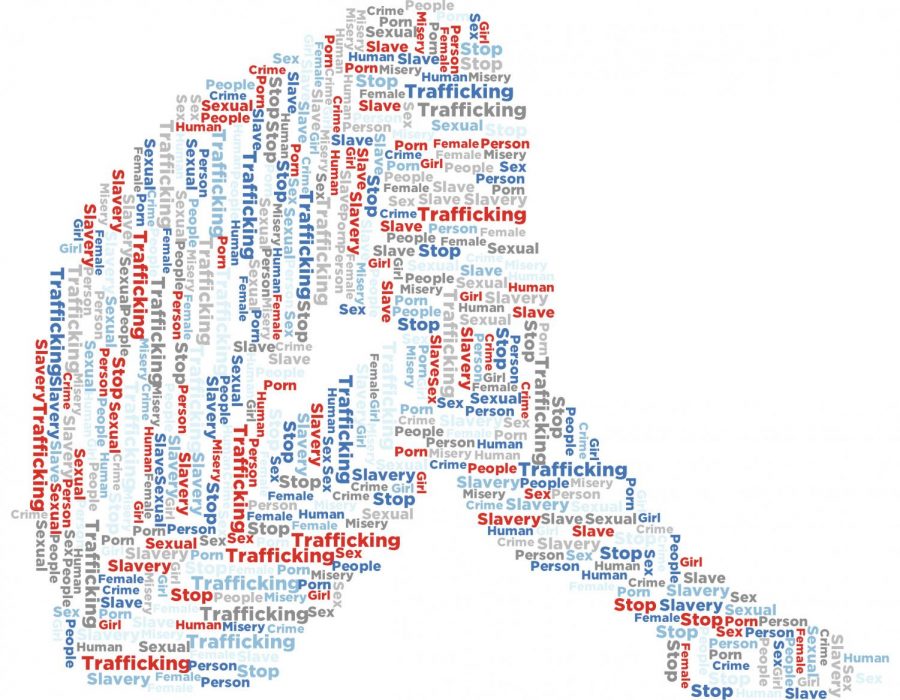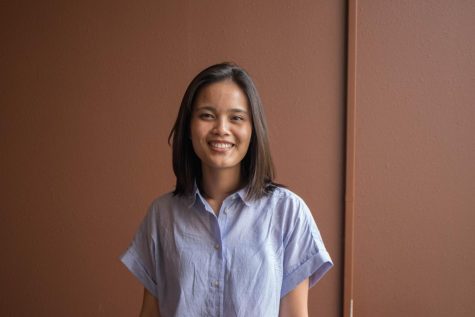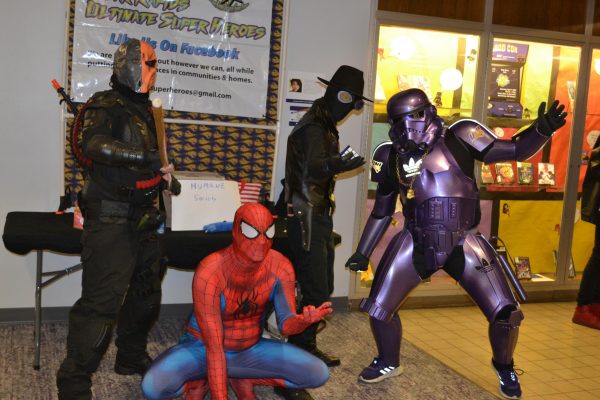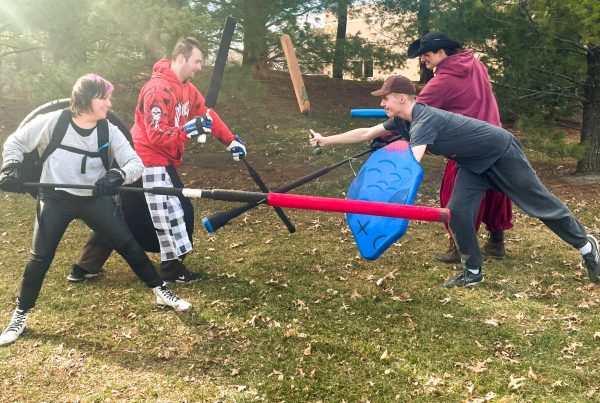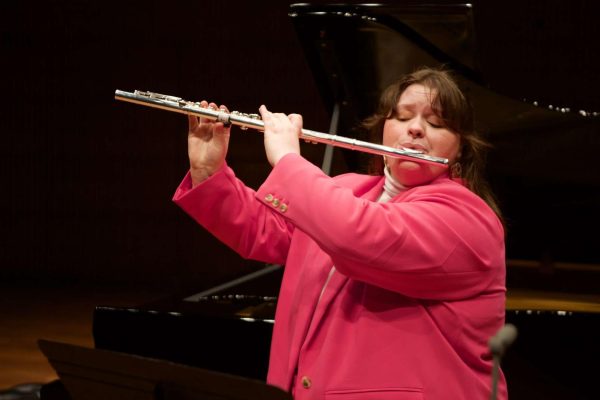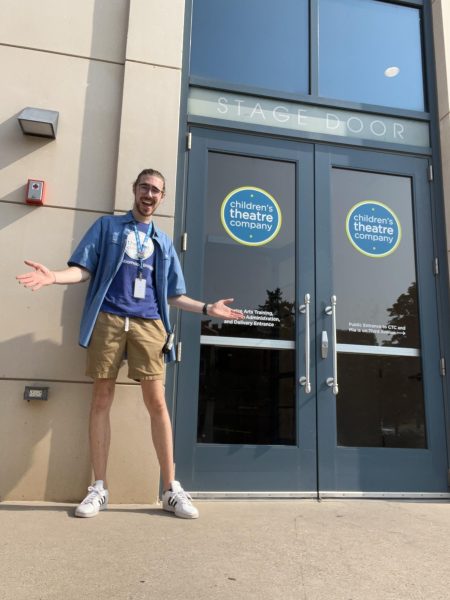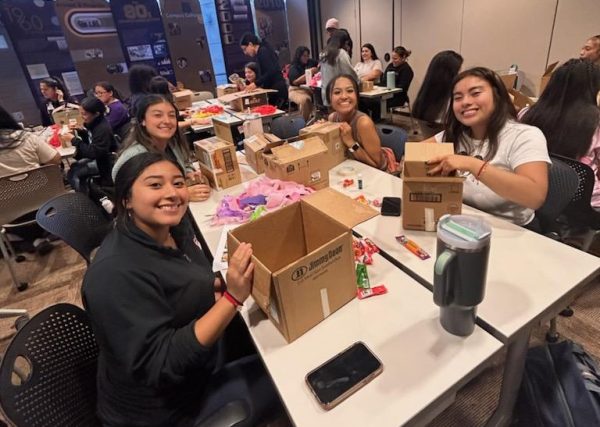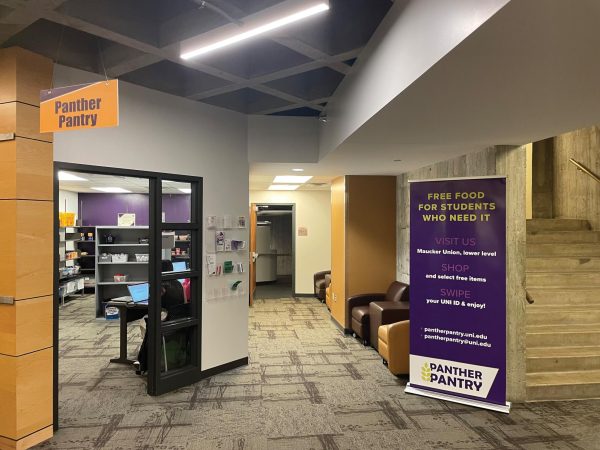Human Trafficking Awareness Month
Jan 18, 2018
January is Human Trafficking Awareness Month, which is dedicated to raising public knowledge on the issue of human trafficking, often referred to as ‘modern-day slavery.’
Michele Powers, president of the UNI chapter of the International Justice Mission (IJM), defined human trafficking as the exploitation of vulnerabilities.
“[Human trafficking] is the translocation or harboring of a person through force, fraud or coercion for the sake of anything,” Powers said.
Different forms of human trafficking include forced labor, debt bondage and sex trafficking, to name just a few. According to the Department of Homeland Security, it is second only to drug trafficking as the most profitable transnational crime.
IJM, a nonprofit organization with 17 field offices located around the world, combats trafficking by rescuing victims, bringing criminals to justice, restoring survivors and strengthening justice systems, as listed on their website. IJM partners with colleges to raise awareness among the next generation.
Powers, a senior majoring in elementary education, started the UNI chapter of IJM with a few friends three years ago. She first became interested in the issue of trafficking after meeting teenage moms in Guatemala who were victims of rape and abuse.
“I just felt like, ‘Okay, I don’t see anybody doing something, and I know that there’s a need, so I guess that means that I need to help!’” Powers said. “I just would hope that someone would do that for me or my sisters if that was happening.”
The state of Iowa is a hotspot for human trafficking largely because of its central location in the United States.
“Iowa has a lot of gas stations and truck stops, which [makes it] very easy for traffickers to exchange goods, as in people,” said Kathryn Waddell, a sophomore Spanish and elementary education double major who runs public relations for IJM. “Since there are a lot of different intersections that run through Iowa, there are also many opportunities to have different bed and breakfasts or hotels where meeting places will happen.”
Sexual exploitation is the most documented form of trafficking, as reported by the United Nations Office on Drugs and Crime. A large percentage of victims are young girls, ranging from eight to 14 years old, according to Waddell.
Just last October, a Waterloo couple pled guilty to trafficking two 16-year-old girls. The teens were transported from Chicago to Waterloo and forced to engage in sex for payment.
Trafficking may occur through psychological control, as well as physical force. Traffickers often maintain power through blackmail, guilt-tripping or brainwashing.
Powers recounted the story of a girl who was forced to have sex with her mother’s boyfriend while he babysat her on the weekends. He threatened to kill her mother if she did not keep quiet.
The girl was around the age of eight.
On UNI’s campus, IJM works to prevent more stories like these through awareness-raising, advocacy, fundraising and prayer. According to Powers, they currently have around 18 to 25 members.
During Human Trafficking Awareness Month, IJM members will be giving presentations in residence halls across campus. At 7 p.m. on Monday, Jan. 29, they will hold a chapter meeting in the State College Room in Maucker Union.
“At that meeting [. . .] we will train everybody on how to give a five-minute presentation about the issue of human trafficking and what it’s like across the world and in Iowa,” Powers said. “What we do is we ask professors if we can give that five-minute presentation at the beginning of class. It’s a way of informing our peers about the issue.”
Each presentation concludes with an invitation to join the Rally for Freedom in support of the End Modern Slavery Initiative Act (EMSI). The piece of legislation has already been approved; however, funds must be allocated each year.
During the week of Feb. 26, IJM will have a booth in front of the Maucker Union where students can make phone calls to Congress.
“We’ll give them a script, and just say hey, we think that modern slavery is an issue and we are asking that Congress would make the decision to appropriate that $37.5 million to this,” Powers said.
If that decision is made, the United Kingdom has pledged to match that figure.
Across all its college chapters, IJM’s goal is to call Congress 18,000 times. UNI’s goal is 200.
“What we’ve learned is that one call to Congress is equivalent to 100 signatures sent to Congress [and] one call is equivalent to 10 letters,” Powers said.
Other ways students can help fight human trafficking include learning about the issue and sharing information with others, helping with IJM fundraisers and donating to IJM.
“There’s a lot of future teachers here at UNI, and I think it will help them be more equipped in their future classrooms,” Waddell said. “I think students just need to be aware of the warning signs and what can happen and trying to help people out of those situations.”
“If we have voices that are aware of what’s going on and know how to intelligently advocate for those that are in human trafficking, then the issue doesn’t have to grow,” Powers said.


